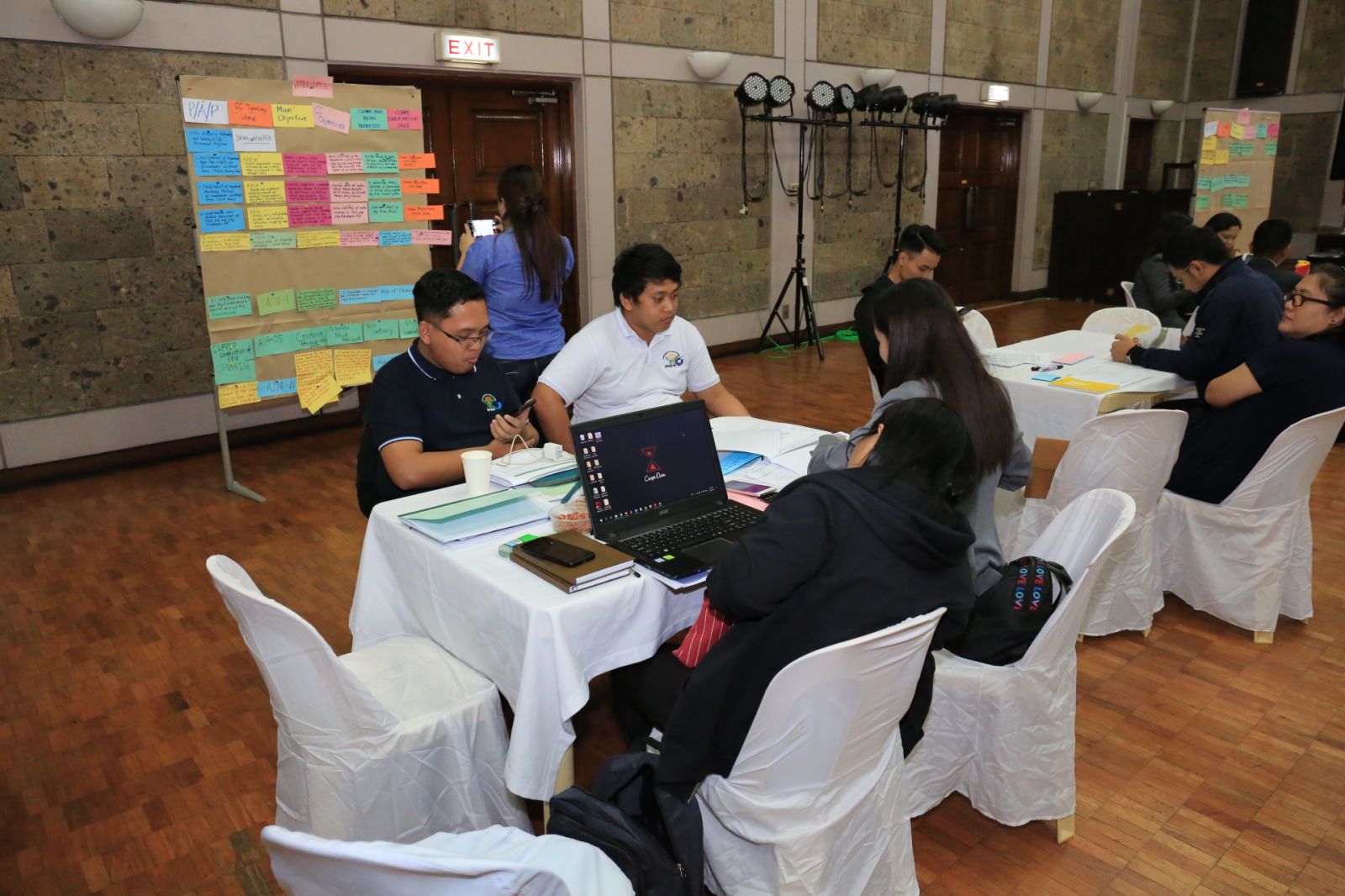
The Government of the Philippines has demonstrated leadership and strong commitment in implementing a comprehensive reform agenda to respond to climate change (CC). With the goal of using the budget process to plan, prioritize, and monitor CC expenditure, the Government has mobilized the National Budget Preparation Process to tag climate change expenditures using a common policy-based typology and guidelines.
The Philippines has led the development of a standardized CC typology and coding structure for use in the planning, budgeting, monitoring, and reporting of public CC expenditures. On 27 December 2013, the Climate Change Commission (CCC) and the Department of Budget and Management (DBM) issue as Joint Memorandum Circular (JMC) 2013-01 mandating government agencies to track their climate change expenditures in their respective 2015 budget submissions using a common framework more popularly known as the Climate Change Expenditure Tagging (CCET).
Target & Beneficiaries
The target beneficiaries are the NGAs, SUCs and GOCCs
Convergence
Pursuant to the CCC-DBM JMC 2015-01, the CCC implements the National Climate Change Expenditure Tagging with the DBM.
Outputs
Despite the imposition of community quarantines, the Philippine government did not stop delivering climate actions. Through the FY2021 National Budget Process, the National Government Agencies (NGAs), State Universities and Colleges (SUCs), and Government-Owned and Controlled-Corporations (GOCCs) guided by the CCC and DBM identified and tagged climate actions in their budget proposals.
41 national government institutions CCET Quality Assurance and Review (QAR) Forms were reviewed and certified for FY2021. These result to the generation of PHP 181 billion worth of climate programs and investments under the National Expenditure Program for FY2021.
.png)
The CCC would like to highlight that based on the National Framework Strategy on Climate Change, Climate Change Adaptation will serve as the anchor strategy. Whenever applicable, mitigation actions shall also be pursued as a function of adaptation.
Surviving climate impacts requires the government’s undivided attention. The Philippines has, therefore, placed adaptation at the core of our long-term development strategies and has promoted national the focus on climate change adaptation to avert losses and build resilience.
Despite that the Philippines have a miniscule carbon footprint – only 0.37% of the global emissions, a small amount is invested for climate change mitigation. This supports the nation’s vision to pursue a development path consistent with the 1.5°C global target under the Climate Change Paris Agreement.
.png)
For FY2021 agency-request level, these agencies have the most contributions to the CCET:
| Agency | CCET Allocations (‘000) |
% of CCET Allocations |
|
PHP 140,064,119 | 77% |
|
PHP 17,265,014 | 9.49% (10%) |
|
PHP 11,156,395 | 6.13% (6%) |
|
PHP 5,419,036 | 2.98% (3%) |
|
PHP 4,340,619 | 2.37% (2%) |
It is worthy to note that while these agencies have tagged their actions to climate change, they have been also tagged their proposed climate-tagged to the Program Convergence Budgeting of the Cabinet Cluster on Climate Change Adaptation and Mitigation-Disaster Risk Reduction and aligned their programs to the national development strategies (i.e. PDP, Build, Build, Build, We Recover As One NEDA Report).
This symbolizes the continued commitment of agencies to address the challenges posed by the climate change through a whole-of-government approach.
.png)
The Climate Change Commission, as the National CCET Helpdesk, commits to continuously monitor and provide technical assistance to NGAs on climate budget tagging. For FY2021, the total climate tagged budget in the NEP is PHP 181,896,073,000.00, which comprises of the following:
Water Sufficiency: PHP 132,331,173,000
Sustainable Energy: PHP 12,449,608,000
Food Security: PHP 22, 436,689,000
Ecosystem & Environmental Stability: PHP 10,359,661,000
Human Security: PHP 693,788,000
Climate-Smart Industries and Services: PHP 2,715,248,000
Knowledge & Capacity Development: PHP 881,942,000
Cross-Cutting: PHP 27,964,000
Furthermore, the National CCET Helpdesk, in convergence with the DBM, delivered the following capacity building programs in 2020:
Delivery of the Gender and CCET workshop for the Commission on Audit
Delivery of the first National CCET Visual Orientation Workshop for the CCAM-DRRM Cabinet Cluster and other NGAs.
.
6th Floor, First Residences Bldg.
1557 J.P. Laurel Street,
San Miguel, Manila
Philippines
Email: info@climate.gov.ph
Phone: (632) 8353 8494


All content is in the public domain unless otherwise stated
All content is in the public domain unless otherwise stated
All content is in the public domain unless otherwise stated
